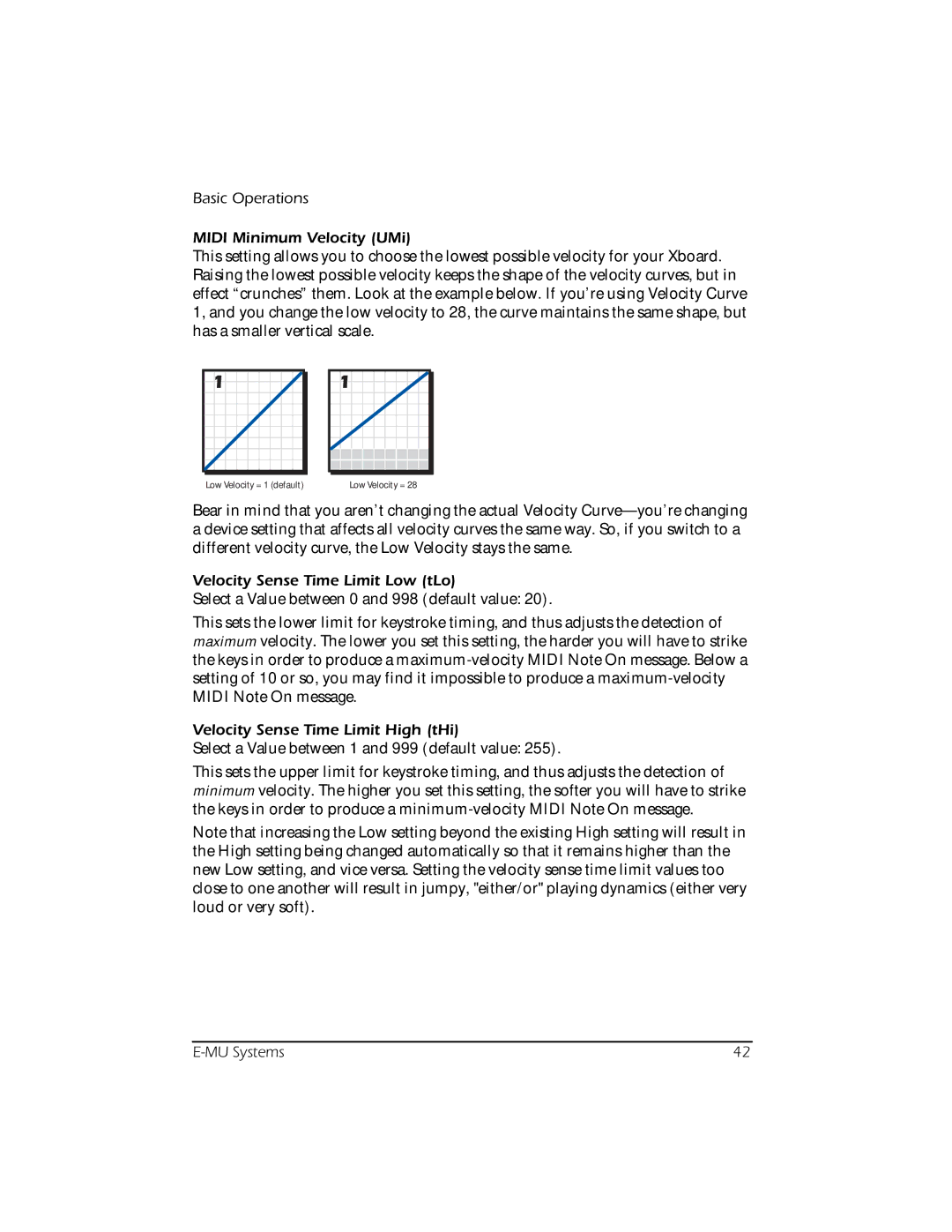
Basic Operations
MIDI Minimum Velocity (UMi)
This setting allows you to choose the lowest possible velocity for your Xboard. Raising the lowest possible velocity keeps the shape of the velocity curves, but in effect “crunches” them. Look at the example below. If you’re using Velocity Curve 1, and you change the low velocity to 28, the curve maintains the same shape, but has a smaller vertical scale.
1
1
Low Velocity = 1 (default) | Low Velocity = 28 |
Bear in mind that you aren’t changing the actual Velocity Curve— you’re changing a device setting that affects all velocity curves the same way. So, if you switch to a different velocity curve, the Low Velocity stays the same.
Velocity Sense Time Limit Low (tLo)
Select a Value between 0 and 998 (default value: 20).
This sets the lower limit for keystroke timing, and thus adjusts the detection of maximum velocity. The lower you set this setting, the harder you will have to strike the keys in order to produce a
Velocity Sense Time Limit High (tHi)
Select a Value between 1 and 999 (default value: 255).
This sets the upper limit for keystroke timing, and thus adjusts the detection of minimum velocity. The higher you set this setting, the softer you will have to strike the keys in order to produce a
Note that increasing the Low setting beyond the existing High setting will result in the High setting being changed automatically so that it remains higher than the new Low setting, and vice versa. Setting the velocity sense time limit values too close to one another will result in jumpy, "either/or" playing dynamics (either very loud or very soft).
42 |
